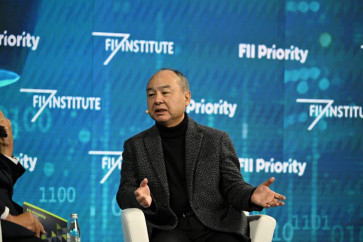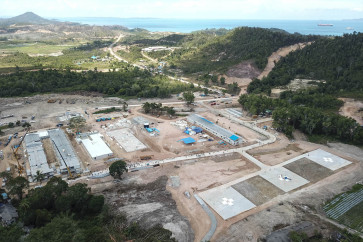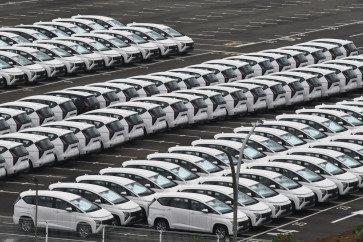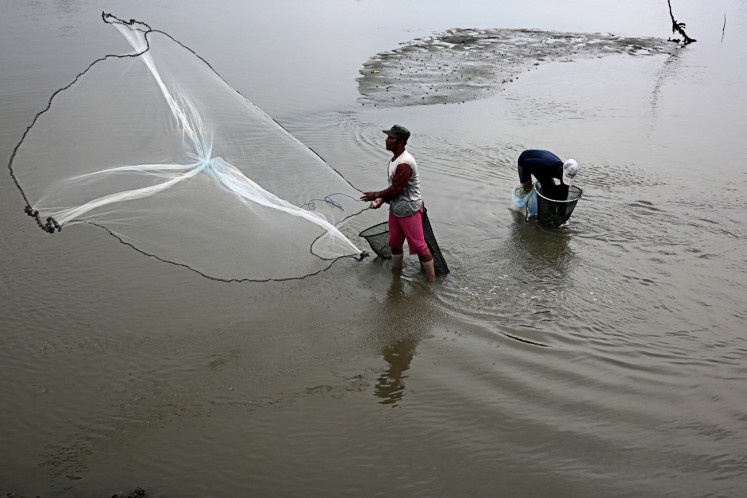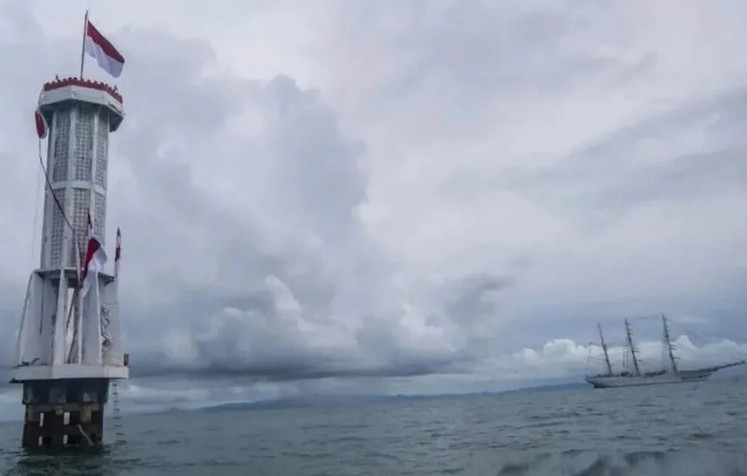Popular Reads
Top Results
Can't find what you're looking for?
View all search resultsPopular Reads
Top Results
Can't find what you're looking for?
View all search resultsPOSCO to double investment to $11b in five years
South Korean steel giant POSCO plans to double its investment in Indonesia to US$11 billion in the next five years from about $6 billion at present to further expand the capacity of the company’s steel plant in Southeast Asia’s largest economy
Change text size
Gift Premium Articles
to Anyone
S
outh Korean steel giant POSCO plans to double its investment in Indonesia to US$11 billion in the next five years from about $6 billion at present to further expand the capacity of the company’s steel plant in Southeast Asia’s largest economy.
“POSCO will increase its investment commitment up to US$11 billion, which will be used to develop steel industries, the energy sector and smelters,” Coordinating Economic Minister Hatta Rajasa told reporters on Friday.
Hatta said that the investment commitment was made by the South Korean steel company’s executives during his recent visit to the country.
Investment from South Korea has jumped significantly in the past year, up by 422 percent to $1.2 billion from 2010, along with the entry of several major firms, including the world’s third-largest steel maker POSCO and the world’s seventh-largest tire maker, Hankook Tires.
POSCO, in cooperation with Indonesia’s largest steel maker PT Krakatau Steel (KS), is constructing a $6 billion steel plant in Cilegon, Banten.
The world’s third-largest steel maker, POSCO, will have a 70 percent stake in the joint venture, while KS will have 30 percent with an option to increase its ownership to 45 percent not more than a year after the plant began operating.
The plant, designed to produce 3 million tons of steel slabs and plates, will come into commercial operation at the end of next year.
Hankook is also building a tire plant in Bekasi, West Java, with a total investment of $1.1 billion by 2018.
The company will start commercial operations at it’s plant in Lippo Cikarang, Bekasi, West Java, in the last quarter of this year, according to the company’s senior executive.
In total, investments from South Korea are projected to reach $12 billion this year.
Bilateral trade also expanded greatly, up by 43.84 percent last year to $29.39 billion a year earlier. However, Indonesia has seen imports of manufactured goods from Korea grow steadily from 2007 to 2011, with the rate growing by 39 percent compared to four years earlier.
On the other hand, Indonesia’s export of manufactured goods to Korea has grown by only 15 percent in the past four years, according to industrial statistics.
Meanwhile, Reuters reported that a POSCO spokesman in Seoul said that other partners might join to invest in various projects in Indonesia in the future. However, no detailed plans had been announced yet.
Previously, POSCO Energy Co — an affiliate of POSCO — kicked off the construction of a 300-kilowatt fuel cell power plant at Ancol Dreamland recreational park in Pademangan district, North Jakarta.
The power plant is estimated to cost $3 billion and is funded by the Korea International Cooperation Agency (KOICA).
Earlier this year, the South Korean firm’s affiliate — POSCO Engineering & Construction — formed a consortium to build two 300-megawatt power plants in Sumatra, worth around $1 billion,
From Japan, Hatta said there was an investment commitment worth Rp 410 trillion to develop Metropolitan Priority Area (MPA) infrastructure until 2020.
“Around 55 percent of the Rp 410 trillion would be financed through the Japanese private sector and the remaining 45 percent would be pushed using a public private partnership [PPP] scheme,” Hatta said.
As for Kuwait, Hatta said that there was a commitment of at least $6 billion from that country to develop a new oil refinery in Balongan, West Java.
Indonesia has become an attractive alternative for investment due to its robust economic growth during the current global crisis.
The growth has been mainly driven by a growing middle class, massive consumption and a decreasing unemployment rate.
Given the country’s strong economic performance, Indonesia’s sovereign rating has been recently upgraded to investment grade by numerous rating agencies, including Fitch Ratings.


